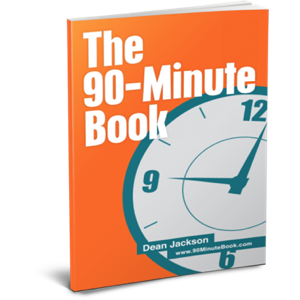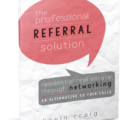Find out how to become a writer and bring about transformation in your field. Capture attention with well-researched and edited materials. Employ my tested methods to write a book that elicits motivation from readers and initiates dialogue. Here are the steps you should take.
Discover the steps to be an author to strengthen your business or reputation. It will launch your career to new heights and create a beneficial impact in your field. The highest quality resources and subjects show that you or your business are experts. Nevertheless, it is necessary to implement the necessary procedures to ensure your message is seen by the relevant people.
Writing a book can be complicated without new authors. You have to get copyright entitlements to guard your intellectual property, and there are different stages. You must have the chapters professionally edited and, when it comes to scientific articles, have them go through a peer-review process. Writing aims to amuse, instruct, and persuade readers through your words. Subsequently, publishing necessitates several procedures and collaborating with outside professionals.
Rather than making a book that will be usable for several years and can be revised frequently, the expensive alternative would be to keep promoting it to stay current. Customers call for more data, yet time-pressed executives don’t always have the capacity for considerable conversations.
Putting your thoughts into a book is beneficial as it allows you to respond to important queries surrounding the topic without constantly reiterating the information.
Gain greater power over your career opportunities by creating a narrative encouraging contemplation and showing expertise. Here are my top tips for getting started.
How to Become an Author: Your Step-by-Step Guide
Did you know that some of the most prosperous businessmen and women are published authors too? Many celebrities have also written books and autobiographies. Individuals from all walks of life, such as entrepreneurs, company leaders, elected officials, and everyday citizens, have meaningful tales to narrate. Their encounters demand and merit an area to be brought to life.
Discover the ways to become an author and join the other authors. Do not assume that having a concept translates into an easy ordeal. Creating a book is one thing. Editing, publishing, distributing, and marketing are others. Each writer has their own procedure when it comes to writing, consequentially leading to various outcomes.
Follow these steps to position yourself as close to the goalpost as possible:

FREE BOOK
Discover the 5 Compelling Book Titles Types that create an ‘I Want That…’ response.
STEP 1: Choose Your Topic Wisely.
Figure out what topic you would like to create content around and then accumulate knowledge about it. Gather information and look at it to gain insight into certain populations, books, and promotional strategies. Compare your ideas to what has already been published to ensure you are not replicating someone else’s work.
Suggestion: Join social media groups related to your business to keep up with the most recent movements and advancements.
Before you write down your book idea, be sure to avoid the biggest mistake that authors make:
Do not compose a book that you believe your readers must read. Instead, write the book your audience wants to read.
This is a subtle yet very important distinction. If you deliver correct responses to the next two queries, it should be placed appropriately.
In 200 words or less, describe your book.
This book provides readers with a concise overview of the main plot and characters of the story. It is an overview that is limited to one paragraph, so readers may quickly get the gist of the book without having to read all of it.
Do not be concerned with making your book description ideal (which comes later in the publishing procedure). Just get something down in less than 200 words that answer these three questions:
- What is the book about?
- Who is the ideal reader for the book?
- What will the ideal reader get?
STEP 2: Get Your Draft Ready.
Write down your thoughts or record yourself so you can use them in the future. Avoid forgetting powerful messages and relevant quotes. Don’t worry about grammar, spelling, or syntax yet. Express your ideas without restriction, then review and refine them afterward. Now is the ideal moment to verify the subject.
Suggestion: Utilize first-rate word processing software to create a well-structured outline for your book.
STEP 3: Clean Up Your Pages.
Revise the draft to make it an enjoyable read. Revise the layout and incorporate graphs, infographics, or photographs as required. Always keep your target audience’s attention span in mind. Give them several tools to help digest your information.
You can offer your readers assistance in finding their way around your website by furnishing them with a table of contents or index.
STEP 4: Find A Professional Editor.
Do not submit your initial or second version to the publisher for review. Bring in an expert to review your work and make necessary corrections in grammar. Once they have been through a thorough revision, they can offer you guidance about logical structure, word usage, and topics.
Investing in an experienced editor or proofreader is advisable to ensure the highest quality and consistency of content.
STEP 5: Pick the Publisher.
Research publishing companies that partner with authors in your area of interest. Examine the contractual provisions and compare them with other possibilities. Select a publisher that offers the most assistance, help, and freedom of expression.
Advice: Certain publishers will only consider submissions from writers focusing on specific topics.
The publishing house will probably require you to submit the early parts of your book for evaluation. Most publishers don’t want your complete manuscript upfront. Keep a secure copy of your work in personal storage to safeguard against mistakes, misadventures, and disappearances. No assurance can be given that you will get your items returned to you once they have been sent.
3 Ways Writing a Book Can Boost Your Career
Learning how to become an author has multiple advantages. First, it positions you ahead of the competition. Those involved in your profession are usually enthusiastic about new publications. Audiences remain eager for current news and flourish when presented with contentious materials that make time of the essence and generate transformation.
Having a book to your name can boost your career standing and open up new possibilities for your business. Here are three ways it accomplishes that:
#1. You Become More Transparent
Composing a book can help clarify the environment associated with your brand or company. You have control over the information you provide, and the listeners then decide how to act or think based on what you have said. Pick content carefully to ensure you are open and honest while speaking in a manner that reflects your business or campaign.
Giving honest and straightforward stories can help readers comprehend what you are passionate about and the beliefs that are most important to you. They can observe how you grew into a leader in the industry or recognized as an influential thinker. Your earnest messaging drives the market to take you and your business more seriously.
#2. It Makes You Seem Relatable
Authors have the opportunity to disclose specific information about themselves either on a personal or professional level. Their work portrays them as genuine individuals instead of unfamiliar figures representing businesses. Every section also examines your judgment forming, things that annoy you, and distinct attitudes.
Make the most of free chances to chat with readers by having live streams on sites like LinkedIn to increase your target audience’s involvement.
Most likely, they’ll have inquiries concerning the material and may start seeing you in a better manner as you respond. Become a well-liked leader with a lot of knowledge.
#3. Books Demonstrate Your Excellence
Writing a book is never easy. If it were, everyone would do it. Finishing a title attached to your name signals a devotion to a bigger cause than just you. It shows great ability to manage time, terrific organizational abilities, and incomparable skills.
Viewers, patrons, and other organizations will observe your proficiency and act accordingly. They could also mention your name while speaking with other people in the same field. Suddenly, people are talking about you, and your book sales skyrocket.
Regrettably, there is not a single approach that would be suitable for all books. Figuring out the process of becoming a writer is unique for each individual. Nevertheless, we have uncovered a few sure-fire strategies that will assist in keeping your pages noticeable.
Use Good Writing Principles
Non-fiction should be succinct, uncomplicated, straightforward, and focused on the reader. Heed these regulations, and you will be authoring supremely sound writing.
1. Make it short.
This is the most important principle. If you correctly answer this question, the other questions usually should not be a problem.
Keep your writing short on all levels. Short chapters (usually no more than 4k words). Short paragraphs (2-3 sentences). Short sentences (5-20 words). Even shorter words (less than 12 characters).
Brevity forces economy and effectiveness. When you limit the amount of room you have to write, it forces you to hone in on what’s essential and discard anything that’s unnecessary.
It is essential to keep it as concise as you can without leaving out any information. Short does not mean missing essential content.
2. Make it simple.
“Simplicity is akin to brevity, but not quite the same thing.” You can write something that’s short but complex. That doesn’t work well.
Writing in plain language is necessitated by the use of straightforward words and phrases. Even the hardest and most intricate ideas can be expressed using brief words and statements. Richard Feynman’s opinion was that if you cannot explain a concept in a straightforward way, it indicates that you lack comprehension of the concept (which is terrible if you are composing a book).
3. Make it direct.
Non-fiction writing tends to include passive sentences, specialized phrases, extended phrases with many clauses, and plenty of adjectives and adverbs.
Don’t do these things. If you’re doing them, stop. If you aren’t sure what they are, then do this:
Make each sentence a single, clear statement. Relate it to the preceding sentence and the one which follows. Do not put multiple thoughts in one sentence.
Make your writing as direct as it can be.
The sentence’s subject carries out the action of the verb when the voice is active. In passive voice, the sentence’s subject is the recipient of the action. Although they share the same connotation, their impact is drastically dissimilar. Example:
Active: Tucker wrote the book.
Passive: The book was written by Tucker.
Using the active voice in writing makes it much simpler for readers to visualize the sentence. You can see Tucker writing a book.
The passive voice requires an additional thought process. You need to visualize a book and then contemplate Tucker composing it.
A tiny shift in thought can create a huge impact on the way individuals react to your writing.
4. Make it about the reader.
Ask yourself this question about everything you write:
“Why does the reader care?”
This is the most difficult rule to abide by, as when you do so, it dawns upon you that most of your writing is done for yourself and not your audience. You recognize that your writing possibly displays signs of being egotistical, excessively self-indulgent, and overly ambitious.
If that happens, don’t get down on yourself. That is common. Only every author has ever had that problem. Shift your focus away from topics the reader isn’t interested in and concentrate on what they are passionate about.
Beat Procrastination & Writer’s Block
Procrastination can be seen as a representation of apprehension in a different way, stopping you from simply getting started with your writing.
If you’re putting off tasks, question whether you are confident in your strategy and blueprint. Occasionally, your inner self may be indicating to you that there is an issue with your plan when you’re inclined to procrastinate.
Look at your outline for your book again. Take a look at it and question yourself on whether or not you accept each component. If you don’t take any action, address any issues you encounter, and you should be fine.
There is also an excellent way to combat procrastination, which is to have an accountable party. If you’re having difficulty getting ahead on your book, let people know about it on social media to receive support and stay motivated.
Occasionally, no fear is associated with a lack of a writer’s creativity. At times when things are rough, these are the techniques that have been seen to be effective.
- Talk it out: Writer’s block exists. There is no such thing as speaker’s block. You can always talk. If you really feel stuck, get someone to interview you about what you’re stuck about. Once you have to talk about it, the ideas and words flow.
- Do something else: You know the saying about how “the phone only rings when you’re in the shower”? Well…go get in the shower. Metaphorically. Going for a walk works really well for me. As does playing with my kids. Taking your mind off of it allows your subconscious to work on the issue, and you can come back to it fresh later on.
- Context switching: Go to a coffee shop, restaurant, or anywhere else. It doesn’t matter where you go as long as you change your context.
- Keep writing: Many times, you’ll feel stuck, and you will keep writing, even if it is useless, and that can keep you going. Lack of momentum almost always has fear underneath it, but sometimes just getting moving is enough to get to something good.
Guest Post Disclaimer
The views expressed in this post do not represent the views of 90-Minute Books. The information has not been verified and should be considered an opinion. You are always advised to do independent research.











